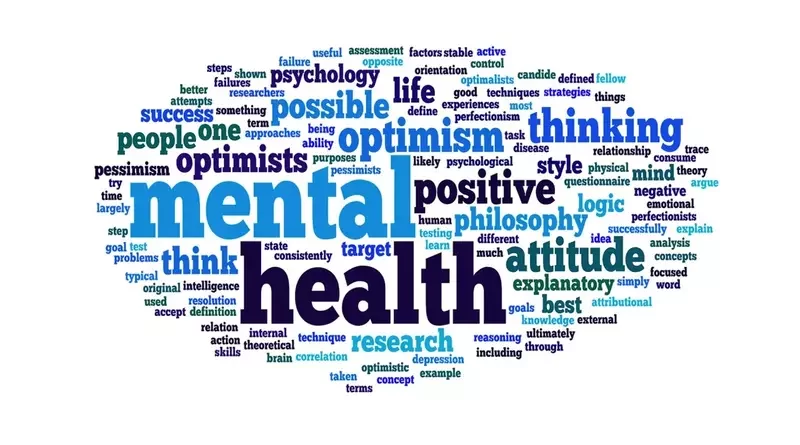Preventative Mental Health Care for First Responders
As 2022 is passing, the world is facing a variety of extraordinary large-scale crises, like the increase in mass shootings, an increase in violence, war-crimes, and a number of natural catastrophes. While first responders are trained to respond to extreme situations in the face of changing circumstances, these trainings do not address or offer information on post-response mental health requirements of those who work in the field.
First responders typically assist people experiencing crisis and adverse circumstances on the first hand and had to confront the trauma that comes from dealing with these situations. Their work could put their mental health risk. The ravages of an unforeseen situation in addition to other emergency situations can impact the mental well-being of first responders as well as health care professionals. The demands of the job and dedication to their work do not disappear and therefore their emotional health is vital for their communities and their network of family, friends, and colleagues.
Behavioral Health Condition of First Responders Personnel
First responders are typically the first ones on the scene to confront demanding, hazardous challenging, and stressful situations. They are also the first ones to help disaster victims and provide physical and emotional assistance to their families and friends. While these duties are essential in all societies, it can be strenuous for first responders. And over time it can make them more vulnerable to the chance of suffering trauma or emotional breakdown. The difficulties faced by first responders in their routine duties as well as after disasters can be numerous and has potential risks and health-related consequences (such as stress, PTSD and depression).
Depression is a common occurrence among first responders, but the rates of depression and severity can differ between studies. For instance, in a study that was a case-control research of certifiably Emergency Medical Service professionals, depression was noted in 6.8 percent with mild depression being the most prevalent kind. Like EMS professionals, Depression is often reported among firefighters, and research studies have shown varying levels and degrees of depression among them.
Police officers are also vulnerable to these risks and have greater chance of having adverse mental health effects because of the risky nature of their job and also the increased chance of experiencing crucial incidents, environmental hazards and traumatizing events. The social pressures on police officers and firefighters resulting from working in male-dominated fields in addition to women’s being more subject to discrimination at work and unmet health requirements has resulted in an increase in symptoms of PTSD and stress, as well as indication of substance abuse.
Preventive Care
The reasons for not seeking mental health treatment are certainly complicated. For instance, emergency response societies value archetypes of self-reliance, self-sufficiency and self-reliance among first responders. They also value playing heroic roles and saving others who are at risk to self-reliance. Police officers, firefighters, and disaster relief workers are usually unaware of the dangers to their mental health that can result from the long-term effects of chronic stress and do not have the information on how and where to find mental health providers who are trained in evidence-based practices. When police officer, firefighters, medical emergency professionals are identified as in need of mental health care and seeking these services, they can be hindered by stigma or the fear of adverse professional implications, losing of status, potential promotions or even the possibility of losing pay. In addition, there are practical hurdles to being able attend regular health appointments because of shift work, the requirement to have staffing and time limitations.
A recent study identified four crucial facilitators for improving the utilization of mental health services among first responders: enhancing awareness, decreasing stigma, improving positive experiences with providers of mental health care, and removing burdens that are based on time.
Preventive care for first responders include identifying the early signs of mental health concerns, such as too much or not enough sleep, a loss of appetite or thoughts of self-harm that can be arousing source. Experts have identified ways first responders use to take care of their mental health:
- Prioritize boundaries. Learn to say no or say not today. Be aware that it’s OK to have a break.
- Make sure to schedule regular activities throughout the day. Walking, as well as other forms of regular physical exercise give you a break from work stress.
- Limit social media. Discussions and negative coverage can be detrimental to those susceptible to depression, anxiety or PTSD.
- Be mindful of the nutrition. Drink plenty of water and be mindful about the foods you are putting into your body.
- Find something that you love. Make yourself something you’re looking for outside of the daily routine. Making time for projects or activities outside of work can help reduce stress and anxiety.
Online Counselling or Therapy
Mental health professionals should discover more innovative methods to promote the benefits of online therapy and counselling for first-responders, who may be reluctant to participate in other ways. Therapists can lead agency-sponsored trainings specifically for the first-responders in their area, offer their services to ride-along or take part in community events along with firefighters, police officers and EMTs, as the first step in establishing a mental wellness dialogue. Psychotherapeutic approaches in which first responders receive therapy is promising with group therapy as the way to go.
Since work of first responders may involve challenging situations, like offensive, violence or disaster-based emergencies, these professionals might witness trauma or suffer secondary trauma as they treat victims. There is no one method of coping that is suitable for all. Professional psychologists or therapist could help first responders in these situations.



